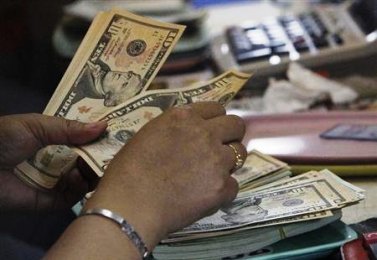Sudanese pound continues drooping against U.S. dollar
November 15, 2016 (KHARTOUM) – The Sudanese pound (SDG) on Tuesday has hit another historic low against the U.S. dollar on the black market as the dollar exchange rate went up to 17.8 SDG from 17.6 SGD last week.

However this measure didn’t stop the rise of the dollar against the Sudanese pound in the parallel market on Tuesday, as the dollar reached 18 SDG.
Currency traders in the black market last Thursday expected that the Sudanese pound would continue to drop against the dollar. They pointed to the increasing demand while the supply remains very limited.
On Tuesday, Shazali a black market trader told Sudan Tribune that dollar exchange rate last Friday was 17.6 SDG and declined to 17.4 SDG at the middle of the week before hiking again to 17.8 SDG.
The CBoS expected that the incentive policy would help attracting Sudanese expatriates to sell their savings to the official banking institutions.
On the other side, currency trader traders stopped selling the dollar but continued buying, according to Ahmed another black market trader. He explained that they wanted to see the impact of the new measures.
The banks were not able to attract expatriates’ remittances during the whole week, as the exchange rate in back market went up.
“We expect that Sudanese pound to continue dropping against foreign currencies because the central bank has no sufficient reserves of hard currency to control the exchange rate,” the trader said.
He added that expatriates have no trust in the CBoS and prefer to transfer their money through the black market which keeps offering interesting rates.
Officials at the finance ministry expected that the new increase of exchange rate for the commercial banks would attract the $4 billion transferred by the expats through the black market.
Traders expect that US exchange rate in the black market might reach 20 SDG within two weeks.
Security authorities usually monitor exchange rate in black market and arrest traders for some time before to release them.
The Sudanese pound dropped down after South Sudan seceded in 2011, as the north Sudan lost three-quarters of oil output, the main source of foreign currency used to support the Sudanese pound and to pay for food and other imports.
(ST)
